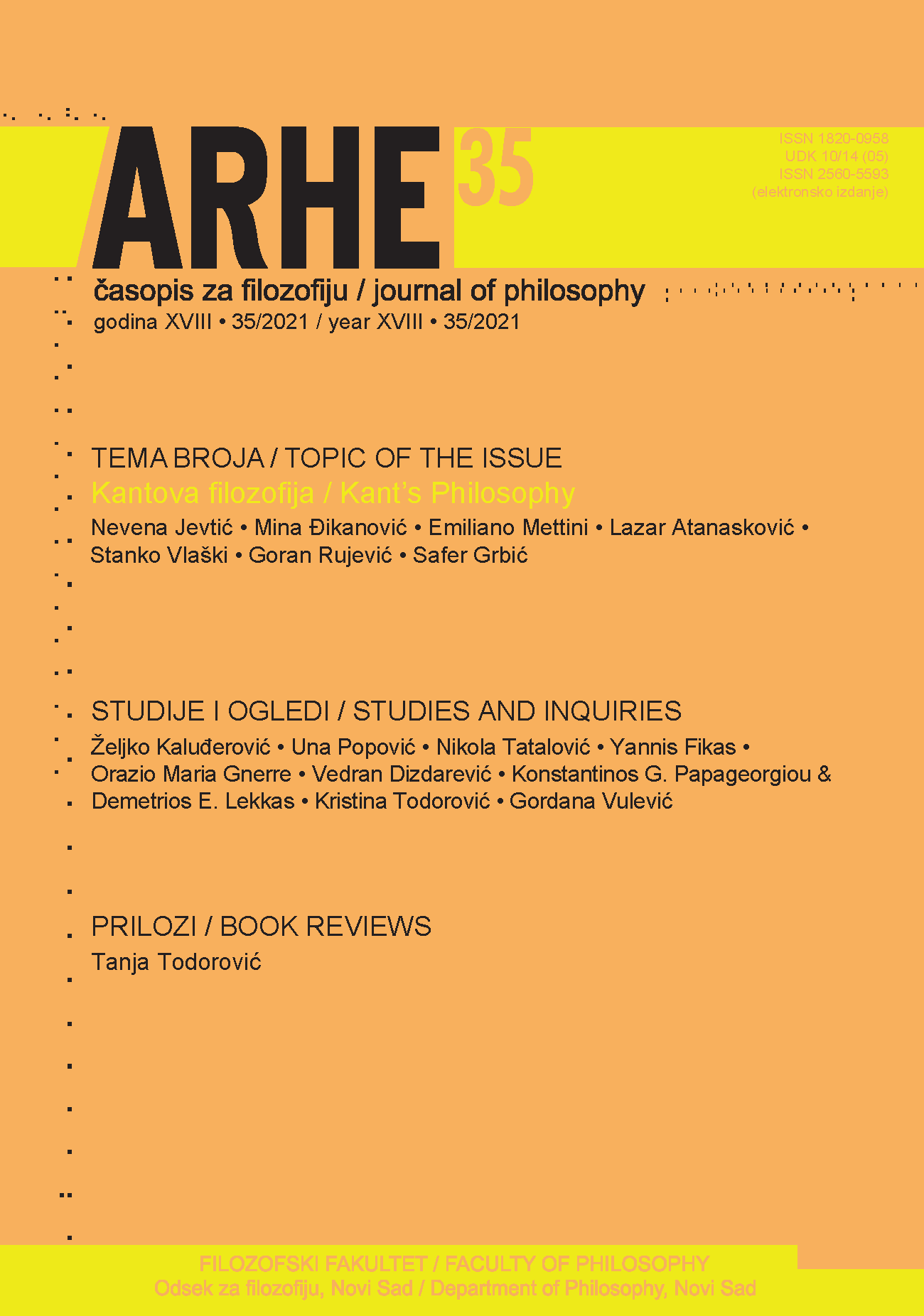THE MIXED NATURE OF PSYCHOANALYTIC DISCOURSE
Main Article Content
Abstract
Since his monography On aphasia, Freud distanced himself from the neurological reductionism of his contemporaries. Pointing out that the phenomenon of aphasia must be understood as independent of the localization of lesia, Freud contributed to the understanding of the phenomenon of hysteria. The hysterical symptom could not be reduced to degenerative changes in the central nervous system. In the case of hysteria, word-presentation is split from thing-presentation. Neurotic symptom – and this is the essence of Freud’s later doctrine – is cured when during the psychotherapeutic process, word presentation is linked with thing-presentation. The patient’s discourse, his free associations, is mainly determined by his unconscious. In an analytic situation, it (unconscious) is revealed to us as discourse. It cannot be disputed. However, if the talking cure is to be the cure, it is necessary to connect the symbolic and the energetic. Linguistic re/interpretation is not an alternative to economic explanation. Dynamic of meaning implies physical (energetic).
Article Details
References
Breuer, J., Freud, S., Studies on Hysteria, vol. II, SE, The Hogarth Press, London, 1893-1895. Glynos J and Stavrakakis, Y., Lacan and Science, Routledge, London, 2002.
Green A., The Fabric of Affect in the Psychoanalytic Discourse, Routledge, London, 1999.
Griesenger, W., Mental Pathology and Therapeutics, William Wood & Company 1882.
Freud, S. Zur Auffassung der Aphasien, Franz Deuticke, Leipzig und Wien 1891.
On Aphasia (A Critical Study). By Sigmund Freud. Translated by E. Stengel. New York: International Universities Press, Inc., 1953.
Freud, S., „Project for a Scientific Psychology“, Freud, A., Strachey, A., Tyson, A., Richards, A. The Standard Edition of the Complete Psychological Works of Sigmund Freud, Volume I (1886-1899): Pre-Psycho-Analytic Publications and Unpublished Drafts, Vintage Books, London, 2001.
Forester, J., Language and the Origins of Psychoanalysis, The Macmillan Press Ltd, London, 1980.
Freud, S., The History of Psychoanalytic Movement, SE, vol. XIV, 1914.
Freud, S., The Unconscious, SE, vol. XIV, Hogarth Press, London, 1915 ab, str.177.
Freud, S., Instincts and Their Vicissitudes, SE, vol. XIV, Hogarth Press, London, 1915 a, str. 121-122.
Frojd, S., Tumačenje snova, Novi Sad, Matica srpska, 1969.
Frojd, S., „Pitanje laičke analize”, u Spisi o psihoanalitičkoj tehnici II (1920-1935), Cathexis, Beograd, 1991.
Felman, S., Jacque Lacan and the Adventure of Insight. Psychoanalysis and Contemporary Culture, University Press, Harvard, 1987.
Man, T., Stvaraoci i dela, Matica srpska, Novi Sad, 1932.
Solms, M., “Before and After Freud's Project“, in: Neuroscience of the Mind, ed. Bilder R, LeFever F. F., The New York Academy of Science, New York, 1998. DOI: https://doi.org/10.1111/j.1749-6632.1998.tb08201.x
Ricoeur, P., Freud and Philosophy: An Essay on Interpretation, Yale University Press, New Heaven, 1970.
